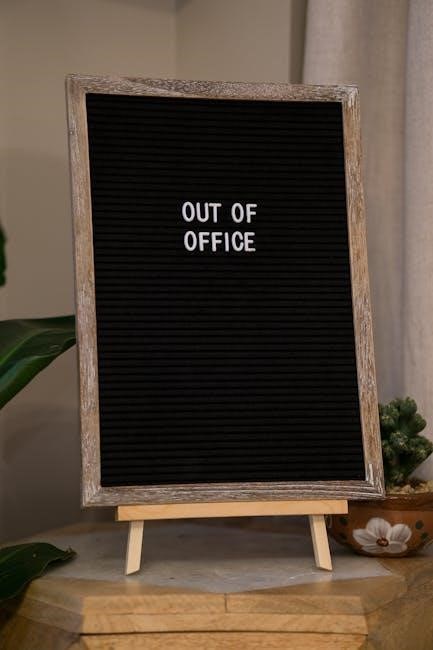
notice of exemption from ab 1482 pdf
Download your AB 1482 exemption notice PDF here. Get the form you need from Telestop Properties.
Overview of AB 1482 and Its Exemptions
AB 1482 is a California law limiting rent increases and requiring just cause for evictions․ It applies to most rental properties but includes specific exemptions․
1․1․ What is AB 1482?
AB 1482 is a California state law that limits annual rent increases to 5% plus inflation and requires landlords to have just cause for evictions․ Effective January 1, 2020, it protects tenants from excessive rent hikes and unfair evictions․ Certain properties, like single-family homes and condos, may be exempt under specific conditions․
1․2․ Key Provisions of AB 1482
AB 1482 limits annual rent increases to 5% plus inflation, capped at 10%, and mandates just cause for evictions․ It applies to most rental units but exempts properties like single-family homes and condos․ Landlords must provide a Notice of Exemption if their property qualifies, ensuring compliance with specific legal requirements․
1․3․ Importance of Understanding Exemptions
Understanding AB 1482 exemptions is crucial for landlords to ensure compliance, avoid legal penalties, and maintain tenant relationships․ Properly identifying exempt properties prevents unintended violations, while failing to provide required notices can lead to disputes and fines․ Clear knowledge of exemptions ensures landlords operate within legal boundaries and uphold their responsibilities effectively․

Notice of Exemption from AB 1482
The notice of exemption must be provided in writing, specifying the property’s exemption under AB 1482, such as age of construction or ownership status, and referencing applicable Civil Code sections․
2․1․ Purpose of the Notice
The purpose of the notice is to inform tenants that the property is exempt from AB 1482’s rent caps and just-cause eviction protections, ensuring transparency and compliance with California law․
2․2․ When Is the Notice Required?
The notice must be provided to tenants when the property qualifies for an exemption under AB 1482, particularly for new tenancies starting after July 1, 2020, or when rent increases exceed the allowable cap, ensuring tenants are informed of the exemption’s implications․
2․3․ Elements of a Valid Notice
A valid notice must include the property owner’s certification under penalty of perjury, details of the exemption justification, supporting documents, and tenant notification․ It should specify the effective date of the exemption and be provided in writing, ensuring compliance with Civil Code sections governing AB 1482 exemptions․

Types of Properties Exempt from AB 1482
Properties built within the last 15 years, single-family homes, condominiums, and those owned by family trusts are generally exempt from AB 1482 regulations․
3․1․ Properties Built Within the Last 15 Years
Newly constructed properties with a certificate of occupancy issued within the past 15 years are exempt from AB 1482’s rent caps and just-cause eviction requirements, ensuring developers can recover construction costs without immediate rent restrictions․
3․2․ Single-Family Homes and Condominiums
Single-family homes and condominiums are typically exempt from AB 1482’s rent control and eviction protections if they meet specific ownership criteria, such as being separately alienable from other units, providing landlords flexibility in managing these properties․
3․3․ Properties Owned by a Family Trust
Properties held in a family trust may qualify for exemption under AB 1482, provided specific conditions are met․ Landlords must still provide tenants with a written notice of exemption, as required by law, to ensure compliance and avoid potential disputes regarding rent increases or eviction protections․

Required Documentation for Exemption
Proof of property ownership, certification under penalty of perjury, and supporting documents confirming exemption eligibility are essential for compliance with AB 1482 requirements․
4․1․ Proof of Property Ownership
Landlords must provide documentation, such as a property deed or title, to verify ownership․ This is crucial for claiming exemptions under AB 1482, ensuring compliance with legal standards and tenant notifications․ Proper documentation helps establish eligibility and avoid disputes, as outlined in Civil Code sections governing exemptions․
4․2․ Certification Under Penalty of Perjury
Landlords must certify under penalty of perjury that the property qualifies for an AB 1482 exemption․ This involves signing a sworn statement affirming the property’s eligibility, with the understanding that providing false information can result in legal consequences․ This step ensures compliance and verifies the legitimacy of the exemption claim․
4․3․ Supporting Documents for Exemption Claims
Landlords must provide supporting documents to validate exemption claims under AB 1482․ These may include property deeds, certificates of occupancy, or trust documents proving ownership․ Additional evidence, such as a certificate of occupancy for properties built within 15 years, may also be required․ These documents verify the property’s eligibility for exemption and ensure compliance with legal standards․
How to Complete the Notice of Exemption Form
Open the form, fill in required fields, and certify under penalty of perjury․ Attach supporting documents and submit to ensure compliance with AB 1482 requirements․
5․1․ Step-by-Step Guide to Filling Out the Form
- Download the Notice of Exemption form from a trusted source like eForms or official California housing websites․
- Fill in the tenant’s and landlord’s details, property address, and exemption justification․
- Attach proof of ownership and certify under penalty of perjury․
- Submit the completed form to tenants and maintain a copy for records․
Ensure accuracy to avoid denial of the exemption and consult a professional if unsure․
5․2․ Tips for Avoiding Common Mistakes
- Ensure all fields are complete, including tenant and property details․
- Attach required documents, such as proof of ownership and certification․
- Verify the exemption justification aligns with California Civil Code․
- Avoid altering the form structure or omitting signatures․
- Double-check for spelling and factual errors before submission․
Accuracy ensures compliance and prevents delays or disputes․
5․3․ Electronic Submission and Storage
Submit the completed form electronically to ensure timely processing․ Use digital signatures for authenticity and maintain a digital copy for records․ Store the document securely, ensuring easy access for future reference or audits․ Electronic submission streamlines the process and reduces the risk of lost paperwork․

Legal and Compliance Considerations
Landlords must adhere to Civil Code sections governing exemptions, ensuring compliance with state laws․ Failure to meet requirements can lead to legal consequences, emphasizing the importance of accurate documentation․
6․1․ Civil Code Sections Governing Exemptions
Civil Code sections 1946․2 and 1947․12 outline the legal framework for AB 1482 exemptions․ These sections specify the conditions under which properties qualify for exemptions, such as age of construction or ownership structure․ Compliance with these codes is essential to avoid legal repercussions, ensuring landlords meet all statutory requirements when claiming exemptions․

6․2․ Consequences of Non-Compliance
Failure to comply with AB 1482 exemptions can result in legal penalties, invalidation of rent increases, and potential lawsuits․ Tenants may challenge unlawful actions, leading to financial liability for landlords․ Non-compliance can also damage landlord-tenant relationships and undermine the legitimacy of exemption claims, emphasizing the importance of strict adherence to legal requirements․
6․3․ Tenant Rights and Landlord Responsibilities
Tenants have the right to receive proper notice of exemption from AB 1482, ensuring transparency about rent limits and eviction protections․ Landlords must provide accurate documentation and comply with legal requirements to avoid penalties․ Failure to meet these responsibilities can result in tenant disputes and legal consequences, emphasizing the importance of clear communication and adherence to the law․

Special Cases and Exceptions
Special cases include properties with multiple units, unique ownership structures, or specific legal statuses requiring tailored notices and documentation to ensure compliance with AB 1482 exemptions․
7․1․ Properties with Multiple Units
Properties with multiple units may qualify for exemptions if each unit meets specific criteria, such as being newly constructed or owned by a family trust․ Landlords must provide individual notices for each exempt unit, ensuring compliance with AB 1482 requirements․ Proper documentation for each unit is essential to avoid legal issues․
7․2․ Rent-Controlled vs․ Exempt Properties
Rent-controlled properties are subject to AB 1482’s restrictions, while exempt properties, like single-family homes or those built recently, are not․ Understanding the distinction is crucial for landlords to determine their obligations and ensure compliance with the law, avoiding potential penalties for non-compliance․
7․3․ Temporary vs․ Permanent Exemptions
Temporary exemptions from AB 1482 apply to properties meeting specific, time-bound criteria, such as recent construction․ Permanent exemptions, like single-family homes, are indefinitely excluded․ Understanding the distinction is vital for landlords to ensure compliance and avoid legal repercussions, as temporary exemptions may expire, requiring future adherence to rent caps and just-cause rules․

Best Practices for Landlords
Proactive management, clear tenant communication, and maintaining accurate records are essential․ Regular legal updates ensure compliance, avoiding potential disputes and penalties related to AB 1482 exemptions․
8․1․ Communicating with Tenants
Clear communication is vital․ Provide tenants with a written notice of exemption, detailing the reason and supporting documents․ Ensure transparency about AB 1482 exemptions, referencing Civil Code section 1947․12(d)(5)(B)․ This avoids disputes and ensures compliance, fostering trust and understanding between landlords and tenants․
8․2․ Maintaining Records
Maintaining accurate records is crucial for compliance․ Keep copies of the notice of exemption, proof of ownership, and any supporting documents․ Proper documentation prevents disputes and ensures adherence to AB 1482 requirements․ Failure to maintain records can lead to legal repercussions, emphasizing the importance of organized and accessible files․
8․3․ Staying Updated on Legal Changes
Landlords must stay informed about updates to AB 1482 and related laws․ Regularly check official state resources, legal forums, and professional associations for changes․ Subscribe to updates from California’s Department of Housing and Community Development or consult legal experts to ensure compliance with evolving regulations and avoid potential penalties or disputes with tenants․

Frequently Asked Questions
AB 1482 exemptions and notices are often confusing․ Common questions include eligibility criteria, required documentation, and tenant rights․ Understanding these FAQs ensures compliance and clarity for both landlords and tenants, addressing key concerns about exemptions and legal obligations effectively․
9․1․ Can a Landlord Withdraw an Exemption Notice?
A landlord can revoke an exemption notice under specific circumstances, such as discovering ineligibility or correcting errors․ However, revocation must comply with legal requirements and may require tenant notification․ It is advisable to consult legal counsel to ensure proper procedures are followed to avoid disputes or penalties, maintaining clarity and transparency throughout the process․
9․2․ How Long Is the Exemption Valid?
The exemption remains valid as long as the property meets the qualifying criteria under AB 1482․ If the property’s status changes, such as exceeding the 15-year construction threshold, the exemption may no longer apply․ Landlords must notify tenants if the exemption status is revoked to ensure compliance with the law and maintain transparency in the tenancy agreement․
9․3․ Can Tenants Contest the Exemption?
Tenants can contest the exemption if they believe the property does not meet the criteria outlined in AB 1482․ They may challenge the validity of the notice or question the landlord’s compliance with legal requirements․ Tenants should review the notice and supporting documents carefully and may seek legal advice to determine if the exemption is properly applied․
Understanding AB 1482 exemptions and properly documenting compliance is crucial for landlords․ Ensuring accurate notices and maintaining records helps avoid legal disputes and ensures tenant-landlord harmony․
10․1․ Summary of Key Points
AB 1482 regulates rent increases and just-cause evictions, with exemptions for certain properties․ Proper documentation and notices are essential for compliance․ Landlords must provide clear exemptions notices, maintain records, and communicate effectively with tenants․ Staying informed about legal updates ensures adherence to the law, protecting both landlords and tenants from potential disputes and penalties․
10․2․ Final Thoughts on Compliance
Ensuring compliance with AB 1482 is crucial for landlords to avoid legal penalties and maintain tenant trust․ Proper documentation, timely notices, and clear communication are essential․ Staying informed about legal updates and seeking professional advice when needed can help navigate complexities․ Compliance not only protects landlords but also ensures fair treatment of tenants under California’s rent control and eviction laws․